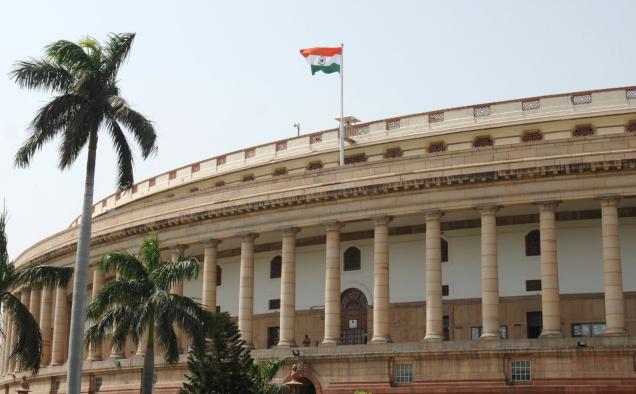Indian President Pranab Mukherjee night re-promulgated an Ordinance to amend the Enemy Property Act Eviction of Unauthorized Occupants Act of 1971 pending ratification by Rajya Sabha.
About Enemy Property Act :
After the Indo-Pakistani War of 1965, the Enemy Property Act was promulgated in 1968. The act authorized the CentralGovernment of India to appoint a custodian for enemy property for India and one or more deputy custodians as assistances.
- There is also a provision which validates the appointments made under the Defense of India Rules 1962 and 1971. The Pakistani nationals in question were citizens of undivided India before the Partition of India in 1947 took place, and left India to settle down in Pakistan.
- Under the notification issued on 10 September and 11 September 1965, the central Government vested the following property in India belonging to, held by, or managed on behalf of Pakistani nationals; entrusting the property and its appurtenances in the hands of the custodian with immediate effect.

- This includes all immovable property, all lockers and safe deposits; and all negotiable instruments such as promissory notes, shares, debentures and other Commerce.
- Citizens of India are banned from entering any transactions by way of granting development rights, selling, transferring or mortgaging more than a third of a property in India declared as “enemy” Property. The office of the Custodian is located in Bombay with a branch in Calcutta.
About The Enemy Property (Amendment and Validation) Bill, 2016
Key features of the Bill
- The Bill amends the Enemy Property Act, 1968, to vest all rights, titles and interests over enemy property in the Custodian
- The Bill declares transfer of enemy property by the enemy, conducted under the Act, to be void. This applies retrospectively to transfers that have occurred before or after 1968.
- The Bill prohibits civil courts and other authorities from entertaining disputes related to enemy property.
Associated Issues
- The Act allows transfer of enemy property from the enemy to other persons. The Bill declares all such transfers as void. This may be arbitrary and in violation of Article 14 of the Constitution.
- The Bill prohibits civil courts from entertaining any disputes with regard to enemy property. It does not provide any alternative judicial remedy (eg. tribunals). Therefore, it limits judicial recourse or access to courts available to aggrieved persons.
The Ordinance amends the Enemy Property Act, 1968 and the Public Premises (Eviction of Unauthorised Occupants) Act, 1971. It replaced the Enemy Property (Amendment and Validation) Ordinance, 2016, which was scheduled to lapse in April 2016.
- The Ordinance further provides that vesting of enemy property with the Custodian will mean that all rights, titles and interests in the property will vest with the Custodian. No laws governing succession will be applicable to these enemy properties.
The 1968 Act allowed for vesting of enemy properties with the Custodian, after the conflicts with Pakistan and China. The Ordinance amends the Act to clarify that even in the following cases these properties will continue to vest with the Custodian:
(i) The enemy’s death,
(ii) If the legal heir is an Indian,
(iii) Enemy changes his nationality to that of another country.
It is noted that the Act permitted the Custodian to carry out some measures (including selling, mortgaging or leasing enemy property). The Ordinance adds to the list of permissible measures:
(i) Fixing and collecting rent, license fee, etc. from enemy property, and
(ii) Evicting unauthorized occupants and removing unauthorized construction from such properties.






